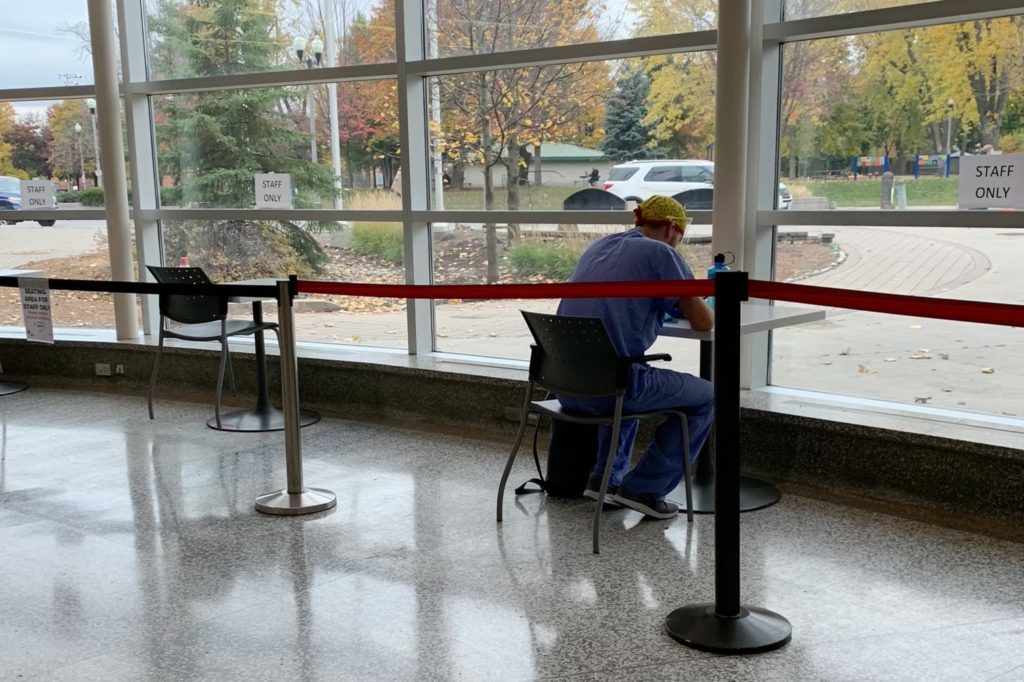From general to psychiatric hospitals, healthcare providers find they lack time for meals throughout their shifts.
By Gabrielle Olano
Video by Kuwarjeet Arora
Multimedia by Kareena Aranha
Frontline healthcare workers are feeling the weight of working during the COVID-19 pandemic as the amount of work has impacted their eating habits.
“During a 12-hour shift, sometimes we can go like eight, nine hours without taking a break,” said David Griffith, a registered nurse at Humber River Hospital. “Sometimes we might not even have a time to eat.”
Being a necessity in providing care for patients, nurses and doctors are constantly on the move, giving them less time for eating.

Canada’s food guide encourages healthy eating at work, as well as preparing balanced meals in advance.
Griffith, who started working amidst the pandemic, expressed that the hospital’s cafeteria lacks healthier options and the stress from work influences his food choices.
“It’s just quick, easy, and convenient to order a meal from my phone through Uber Eats because I don’t necessarily have the energy to cook after a long day,” said Griffith.
Story continues below infographic
Ripudaman Kohli, a Toronto Public Health nurse, craves junk food and coffee to keep him going.
“While I was working on medicine floors, I found myself eating from the cafeteria a lot,” said Kohli.
Sachi Bogovic, a registered nurse at the Centre for Addiction and Mental Health (CAMH), said she is lucky to take a proper break to eat, but can’t always follow the food guide’s recommendations.
“The way I eat depends on the day and how my shifts are,” said Bogovic. “The days I have off, I’ll definitely be eating healthier. It depends on how busy my schedule is, how well-balanced I can make my meal.”
Create your own user feedback survey
Leave a Reply